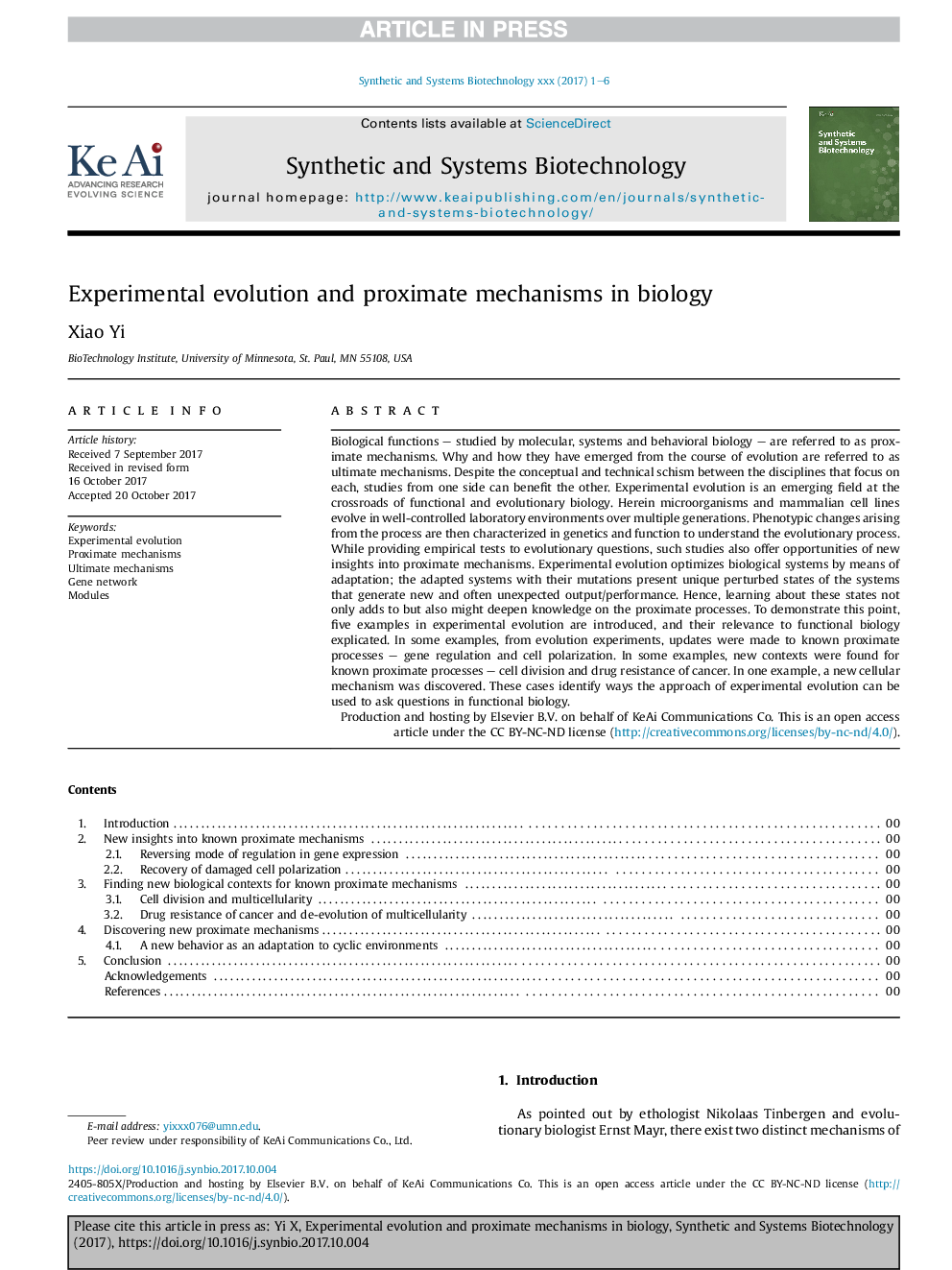| Article ID | Journal | Published Year | Pages | File Type |
|---|---|---|---|---|
| 8425937 | Synthetic and Systems Biotechnology | 2017 | 6 Pages |
Abstract
Biological functions - studied by molecular, systems and behavioral biology - are referred to as proximate mechanisms. Why and how they have emerged from the course of evolution are referred to as ultimate mechanisms. Despite the conceptual and technical schism between the disciplines that focus on each, studies from one side can benefit the other. Experimental evolution is an emerging field at the crossroads of functional and evolutionary biology. Herein microorganisms and mammalian cell lines evolve in well-controlled laboratory environments over multiple generations. Phenotypic changes arising from the process are then characterized in genetics and function to understand the evolutionary process. While providing empirical tests to evolutionary questions, such studies also offer opportunities of new insights into proximate mechanisms. Experimental evolution optimizes biological systems by means of adaptation; the adapted systems with their mutations present unique perturbed states of the systems that generate new and often unexpected output/performance. Hence, learning about these states not only adds to but also might deepen knowledge on the proximate processes. To demonstrate this point, five examples in experimental evolution are introduced, and their relevance to functional biology explicated. In some examples, from evolution experiments, updates were made to known proximate processes - gene regulation and cell polarization. In some examples, new contexts were found for known proximate processes - cell division and drug resistance of cancer. In one example, a new cellular mechanism was discovered. These cases identify ways the approach of experimental evolution can be used to ask questions in functional biology.
Related Topics
Life Sciences
Biochemistry, Genetics and Molecular Biology
Biotechnology
Authors
Xiao Yi,
